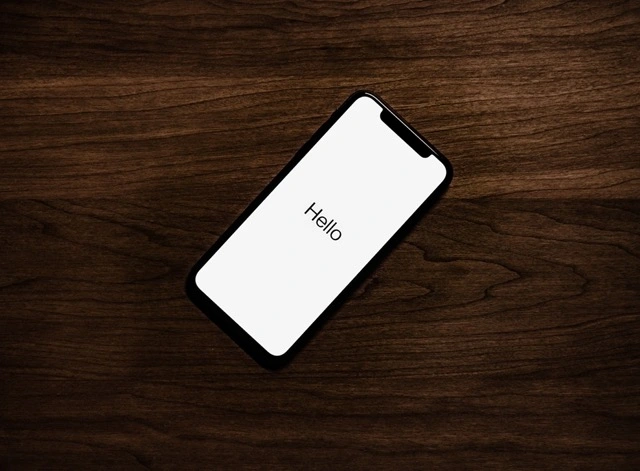How to Introduce Yourself in Greek: A Beginner's Guide

Γειά σας! (Yia sas!) Welcome to this comprehensive guide on how to introduce yourself in Greek.
Basic Greetings
Here's a list of common greetings you can use:
| Greek Word | Romanized Version | English Translation |
|---|---|---|
| Γειά σας | Yia sas | Hello/Hi |
| Χαίρετε | Hérete | Hello (Formal) |
| Χαίρω πολύ | Hairo polý | Nice to meet you |
| Καλημέρα | Kaliméra | Good morning |
| Καλησπέρα | Kalispéra | Good afternoon |
| Καληνύχτα | Kaliníkhta | Good night |
📚 Examples and Usage
Morning Greeting: Καλημέρα, πώς είσαι; (Kaliméra, pós eísai?) - Good morning, how are you? Business Meeting: Χαίρετε, κυρίες και κύριοι. (Hérete, kyries kai kyrioi.) - Hello, ladies and gentlemen. Networking Event: Χαίρω πολύ, είμαι ο Ανδρέας. (Haíro polý, eímai o Andréas.) - Nice to meet you, I am Andreas. Meeting a Neighbor: Χαίρω πολύ, είμαι η Σοφία και μόλις μετακόμισα εδώ. (Chaíro polý, eímai i Sofía kai mólis metakómisa edó.) - Nice to meet you, I am Sofia and I just moved here.
Subscribe for more free lessons
Stating Your Name
Knowing how to properly introduce yourself by stating your name is one of the first essential skills when learning a new language. In Greek, there are a couple of ways to do this, each suitable for different contexts—whether you're meeting someone for the first time, attending a formal event, or simply starting a conversation. Below are some expressions you can use to clearly and politely state your name in Greek.
| Greek Sentence | Romanized Version | English Translation |
|---|---|---|
| Με λένε [Your Name] | Me léne [Your Name] | My name is [Your Name] |
| Είμαι ο [Your Name] | Eímai o [Your Name] | I am [Your Name] |
| Το όνομά μου είναι [Your Name] | To onomá mou eínai [Your Name] | My name is [Your Name] |
📚 Examples and Usage
Casual Meeting: Γειά σας, με λένε Κώστα. (Yia sas, me léne Kósta.) - Hello, my name is Kostas. Classroom Introduction: Το όνομά μου είναι Μαρία. (To onomá mou eínai María.) - My name is Maria.
Note
In Greek, Με λένε - (Me lene) literally translates to They call me. My name is in Greek is Το όνομά μου είναι - (To onoma mou einai). Both are valid ways to state your name in Greek, but we tend to use the former.
How To Ask 'What's Your Name?' In Greek
To ask someone their name, you have two main options:
| Greek Sentence | Romanized Version | English Translation |
|---|---|---|
| Πώς σε λένε; | Pós se léne? | What's your name? |
| Ποιο είναι το όνομά σου; | Poio eínai to onomá sou? | What is your name? |
📚 Examples and Usage
Casual Encounter: Πώς σε λένε; Με λένε Αλέξη. (Pós se léne? Me léne Aléxi.) - What's your name? My name is Alexi.
Formal Setting: Ποιο είναι το όνομά σου; Το όνομά μου είναι Ελένη. (Poio eínai to onomá sou? To onomá mou eínai Eléni.) - What is your name? My name is Eleni.
Talking About Your Origin
Here's how to share where you're from:
| Greek Sentence | Romanized Version | English Translation |
|---|---|---|
| Είμαι από την [Your Country] | Eímai apó tin [Your Country] | I am from [Your Country] |
| Κατάγομαι από την [Your Country] | Katágomai apó tin [Your Country] | I originate from [Your Country] |
📚 Examples and Usage
Tourist Introduction: Είμαι από την Αμερική. (Eímai apó tin Amerikí.) - I am from America. Business Context: Κατάγομαι από την Αγγλία. (Katágomai apó tin Anglía.) - I originate from England.
Note
Most countries in Greek are feminine, this is why we use the definite article in its feminine form (την).
How To Ask ‘Where Are You From’ In Greek
So you've got the basic greetings down and even know how to state your name like a pro. Now it's time to take it a step further and learn how to ask someone where they're from. After all, it's a great conversation starter!
Phrases to Use
Here are some phrases you can use to ask someone about their origin:
| Greek Sentence | Romanized Version | English Translation |
|---|---|---|
| Από πού είσαι; | Apó poú eísai? | Where are you from? |
| Από ποια χώρα κατάγεσαι; | Apó poia chóra katágesai? | What country do you come from? |
📚 Examples and Usage
Casual Conversation: Από πού είσαι; Είμαι από την Αθήνα. (Apó poú eísai? Eímai apó tin Athína.) - Where are you from? I'm from Athens.
Meeting Someone Abroad: Από ποια χώρα κατάγεσαι; Κατάγομαι από την Ελλάδα. (Apó poia chóra katágesai? Katágomai apó tin Elláda.) - What country do you come from? I come from Greece.
Additional Information About Yourself
Here are some examples to share more about yourself:
| Greek Sentence | Romanized Version | English Translation |
|---|---|---|
| Είμαι [Your Profession] | Eímai [Your Profession] | I am a [Your Profession] |
| Μου αρέσει να [Your Hobby] | Mou arési na [Your Hobby] | I like to [Your Hobby] |
📚 Examples and Usage
Social Gathering: Είμαι δάσκαλος και μου αρέσει να διαβάζω. (Eímai dáskalos kai mou arési na diavázo.) - I am a teacher, and I like to read. First Date: Είμαι φοιτητής και μου αρέσει να παίζω κιθάρα. (Eímai foititís kai mou arési na páizo kithára.) - I am a student, and I like to play the guitar.
Essential Vocabulary for Introducing Yourself and Basic Conversations
In any language, having a foundational vocabulary is crucial, especially when you're meeting someone for the first time. The table below provides essential words and phrases you'll likely use when introducing yourself or engaging in basic conversations in Greek. Alongside each Greek term, you'll find its Romanized version for easier pronunciation and its English translation. Consider this your quick-reference guide for your first steps into Greek conversations.
| English | Greek | Romanization |
|---|---|---|
| hello | γειά | yia |
| name | όνομα | ónoma |
| country | χώρα | chóra |
| profession | επάγγελμα | epángelma |
| welcome | καλώς ήρθατε | kalós írthate |
| how are you? | πώς είσαι; | pós eísai? |
| good | καλά | kalá |
| bad | κακά | kaká |
| thank you | ευχαριστώ | efcharistó |
| please | παρακαλώ | parakaló |
We hope this guide has been helpful in teaching you how to introduce yourself in Greek. Ευχαριστούμε και καλή συνέχεια! (Efcharistóume kai kalí sinécheia!) Thank you and enjoy the rest of your day!
Subscribe for more free lessons


